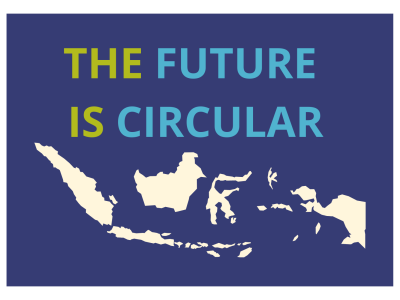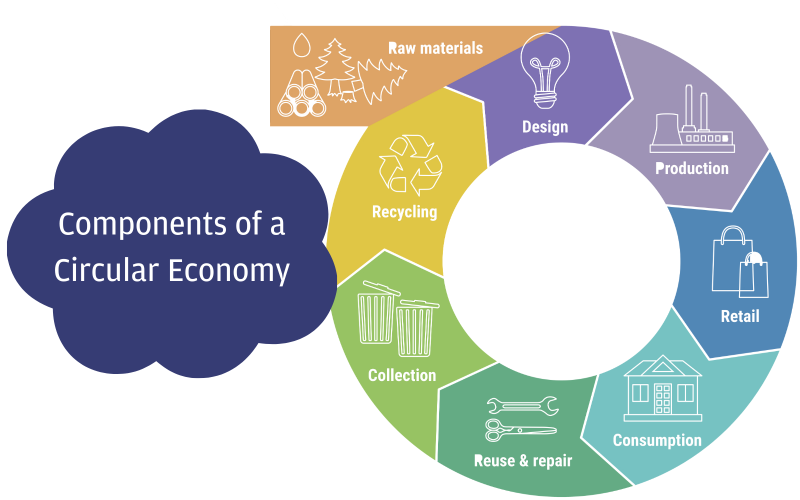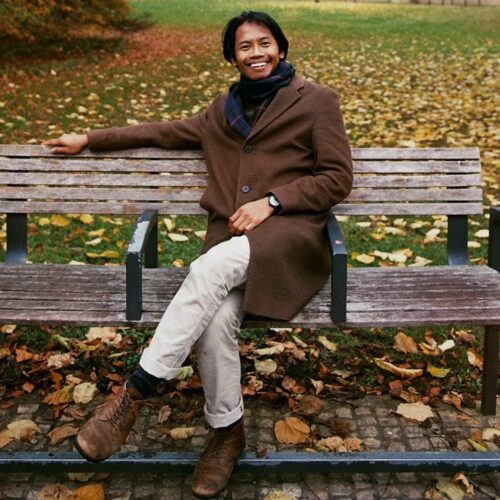Developing a career in a new field is challenging but also exciting. My name is M. Abdul Manaf, known as Manaf or Mannie among friends. I am interested in sustainability with a focus on the circular economy, and now together with Circular Innovation Games, I am trying to build a career in this field.
“I regret to inform you that the hiring managers have decided not to continue with your candidacy for the role of Consultant Circular Economy.”
It was a sunny day when I opened my inbox to see the rejection email for a job focusing on the circular economy in Indonesia. Despite my disappointment, I am still interested in a career in the field. Since returning to Indonesia after studying in the Netherlands, I have wanted to develop my career in the circular economy by working for an established company or developing my own enterprise. Despite having applied to several jobs related to the circular economy, I have made no further progress in my job application.

Why Circularity?
I am interested in circularity because it can be used to develop a safer economy for the environment than a conventional one. Using existing resources as long as possible and at their highest value reduces the environmental impact compared to throw-away culture. Unfortunately, sustainable consumption and waste management are less prioritised. It is also exacerbated when many sustainable alternatives are more expensive – this trade-off must factor into sustainable development and the circular economy.
I cannot insist everyone in Indonesia be environmentally conscious while their primary need is not yet met, but taking an economic approach has high potential in Indonesia. People are more likely to be eco-friendly when it can be explained in terms of money, such as showing how purchasing a reusable bottle is cheaper than buying a single-use water bottle every day. I believe the circular economy approach is a way to balance both the economy and eco-friendly behaviour.
The Indonesian Circular Economy is a New Field
The circular economy in Indonesia is new. It first gained traction in 2016 and slowly became prevalent in 2022. The circular economy trend was preceded by the Indonesian plastic pollution problem, an issue publicised by Jenna Jambeck in 2015 highlighting the need for Indonesia to take action. Because plastic pollution was a prevalent issue, it became one of the topics for the World Bank and IMF annual meeting hosted in Bali in 2018. This was the first time I heard about circular economy as the solution for reducing plastic pollution, and I was intrigued by the way it focuses on the economy and environment together.
In the Indonesian context, a circular economy is closely related to waste management practices, as seen in many RPJMN (National Medium Term Development Plans). The Bappenas report highlighted the R-approach that is common in waste management: the 5Rs, or Reduce, Reuse, Recycle, Refurbish, and Renew. The Rs focus on everything from eliminating waste in the production and supply chain to repairing products for reuse to transitioning to regenerative materials.

Indonesia has Limited Positions in the Circular Economy
With my education level and skillset, my options are truly limited if I insist on being an employee. While the circular economy is gaining momentum now, I haven’t seen many jobs vacancy related to the circular economy in Indonesia. Since April 2023, I have only found three vacancies with circular economy in the job title. I don’t have a lot of choices, and I also have strict criteria for the type of companies I am willing to work for, such as avoiding the petrochemical or intensive agriculture sectors.
The Need to Expand the Indonesian Circular Economy Field
Many elements already exist to support Indonesia’s circular economy ecosystem, especially in the waste management system. NGOs and companies are working to create a system where waste is not wasted but instead transformed into something valuable. These organizations already educate citizens, support behavioural changes, and promote reducing and reusing waste. They also have facilities and material processing to support additional aspects of the circular economy, like recycling, recovering materials, and refurbishing.
However, the circular economy is not about only about waste, and so requires additional roles to successfully transition into a circular system. There are potential careers in circular business models, circular monitoring, assessment, design, and innovation. The policy and governance sectors needs circular roles, as do the financial and educational sectors. I believe Indonesia is slowly getting there.
Breaking into an Emerging Industry is Challenging (Especially in Indonesia)
Developing a career in the circular economy is challenging, particularly so when finding employment is my focus. There are many talented people in Indonesia, and the competition to get such a job is high, especially when the playing field is narrow.
Looking back at my rejection letter, I see it as an opportunity. The circular economy industry in Indonesia is not yet as common as in the Netherlands. The process of jumping into a still-emerging industry makes me consider starting my own circular company and making my own opportunity. I have always been drawn to impact entrepreneurship, which is why I am a member of StartHub at my university. I also took courses on sustainable entrepreneurship, have worked for World Fair Trade Organization (WFTO), and even joined entrepreneurial workshops like the Circular Innovation Games. I think it is time to leverage my skills and experience to create my own company. I always jokingly said to my friends that I would have my own company.
So then, what’s stopping me? Regardless, the best course of action is to start.
About the Author

Manaf is an environmental activist and researcher with a demonstrated history of working in the non-profit organization management industry. He is skilled in research, social media, Microsoft Word, communications, event/project management, and public speaking. Manaf has a Bachelor of Engineering (B.Eng.) from Universitas Airlangga. His passions include the environment, circular economy and sustainable development.
Manaf recently participated in the Circular Innovation Games held in May of 2023 in Erfurt, Germany. This included the first edition of the Circular Court which gathered 24 young people from 6 countries to discuss practical steps for municipalities for implementing the circular economy.
